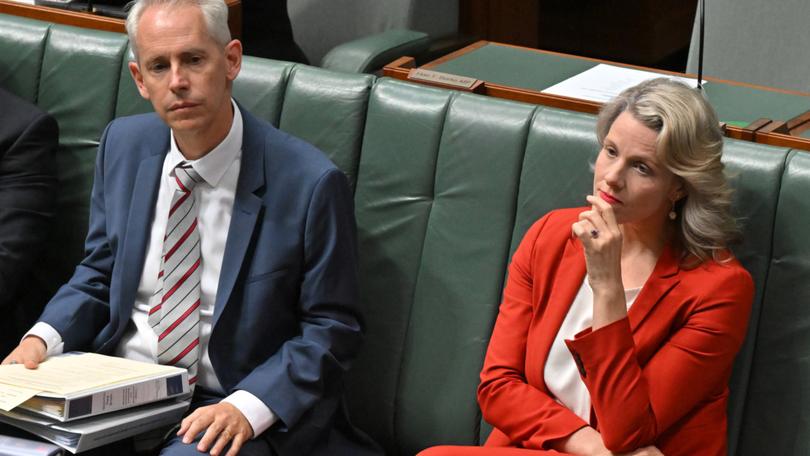Immigration minister to be given powers to ban problem nations from Australia under new visa laws
The Federal Government will be given powers to force non-citizens who refuse to be deported to return home or go to jail, and block new visa applications from those applying from ‘removal concern countries’.

Immigration Minister Andrew Giles will be given powers to force non-citizens of countries who refuse to be deported from Australia to get a passport and return home or face up to five years in jail, under new immigration legislation described as “truly Trumpian”.
The emergency bill, introduced in Parliament on Tuesday, will also lead to immigration detainees who refuse to cooperate with the Commonwealth’s efforts to deport them being jailed for between one and five years.
People found to be owed asylum cannot be directed to interact with or be deported to the country they have sought protection from, but they can be told to do the things necessary to send them to a third country.
Sign up to The Nightly's newsletters.
Get the first look at the digital newspaper, curated daily stories and breaking headlines delivered to your inbox.
By continuing you agree to our Terms and Privacy Policy.As well, the Federal Government would be able to block new visa applications from anyone — such as academics or tourists — seeking to come to Australia from places designated as “removal concern countries”, which are likely to include Iran, Russia and South Sudan.
The Government says the ban on visas from certain countries would send a message to those countries that Australia expects them to take back their own citizens even if they don’t want to be deported.
An immigration minister could only designate a country after consulting with the Prime Minister and foreign minister.
Mr Giles said some non-citizens who had “exhausted all their pathways to stay in Australia” refused to engage with their home country, apply for passports, or meet with officials from that nation.
“Unfortunately, examples of non-cooperation with the Government’s removal efforts have been going on for too long against the expectations of the Australian community, and undermining the integrity of our migration laws,” he said while introducing the bill to Parliament on Tuesday.
“The Albanese Government is committed to strengthening Australia’s migration system — making it better, stronger and fairer and ensuring it is working in Australia’s national interest.”
Greens MP Elizabeth Watson-Brown criticised the bill and said forcing people to return to their home country or face jail time was “draconian”.
“The minister mentioned the words recalcitrant countries. That is Trumpian language for a truly Trumpian bill,” she said.
“It’s giving the minister what’s been described as autocratic powers — meaning sole powers without any scrutiny and without any ability for people to actually kind of resist it or to have any say in the process.”
In 2017, Donald Trump used a presidential order to place travel bans on people from countries including South Sudan, Egypt, Iran, Iraq, and Libya, including suspending visa processing for family members and refugees.
Shadow immigration minister Dan Tehan blasted the Government for trying to rush the legislation through Parliament within two days and called the move “chaotic and botched.”
The Opposition is demanding a snap Senate committee inquiry into the bill be held on Tuesday night before it passes.
“We need some time to consult on this bill, and then some time to interrogate your department on this bill,” Mr Tehan said.
A High Court case next month about an Iranian man, known as ASF17, who is refusing to cooperate with the Government because he fears he would be harmed if he was deported back to Iran, has prompted Labor to bring on the tough new deportation laws.
There are fears if the Commonwealth loses the case it could result in more than 170 people being released from immigration detention. The matter will be heard on April 17, in the middle of Parliament’s six-week pre-budget break.
Attorney-General Mark Dreyfus asked the High Court in February to hear the ASF17 case, instead of the Federal Court, to clear up the points of law.
The High Court blindsided the Government last year when it made oral orders at the end of a hearing that indefinite immigration detention was unconstitutional, without publishing its reasons for the decision that could inform legislative fixes.

